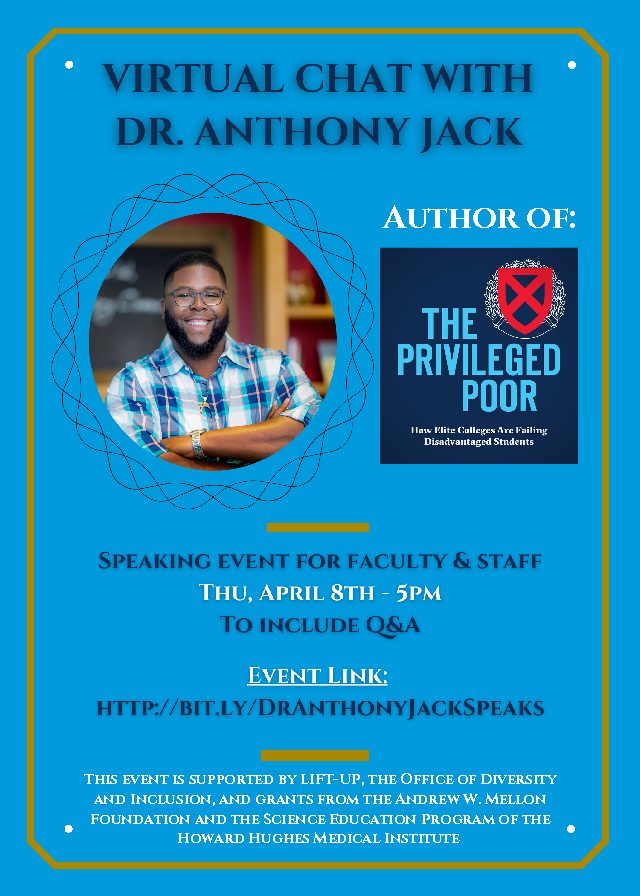Come hear from three faculty about innovations they have made in their classes. Each Inclusive Pedagogy Committee award recipient will share a 5-10 minute summary their revision, including why they did it, what they accomplished and what needed improvement. This will then be followed by a question-and-answer session.
When: Friday, April 1st; 12:30 -1:30 pm
Where: Music Drama Center 259
Masks will be required for all people attending this optional in-person event.
Please RSVP here, preferably before Wednesday, March 30th, 2022
Presenters
Matthew Arau and Stephen Sieck – MUEP 403 Large Ensemble Rehearsal Techniques
Arau and Sieck reconfigured this course to remove barriers to learning and accommodate learner variability by implementing Universal Design for Learning techniques. Students now have multiple ways to represent, express, and engage in learning, and multiple ways to make music and teach music. Changes in this course also influence the pedagogies in the successive courses in the capstone sequence: MUEP 451 Instrumental Rehearsal Techniques (Matthew Arau) and MUEP 452 Choral Rehearsal Techniques (Steve Sieck).
Gustavo Fares – SPAN 425 Latin American Visual Art
Fares coupled technology and flipped classroom units to more fully engage students and reduce stereotype threat as they gain tools for difficult cultural discussions and presentations.
Timothy X. Troy – THAR 347: Acting II: Premodern
Timothy and Jacque Troy were prompted by an exposure to Ayanna Thompson and Lauri Turchi’s book, Teaching Shakespeare with Purpose (Bloomsbury: London 2016) where the authors bring a cross-cultural approach to teaching Shakespeare in the US and the UK. They identified particular developmental characteristics of the 16 to 20 year-old cohort – bridging the usual divide between high school and university education. Thompson and Turchi’s core insights included recognizing that any particular classroom: 1) will have wide-disparities of exposure to Shakespeare; 2) that dense text-based material can be especially challenging for students in our current media environment; and 3) race, class, and other social factors can inhibit the take-up of premodern repertory often associated with cultural institutions suffering from delayed inclusivity. Troy and Troy enhanced the efforts of Thompson and Turchi by including aspects of Universal Design, foregrounding the power of peers teaching peers, and integrating a variety of learning modalities.

